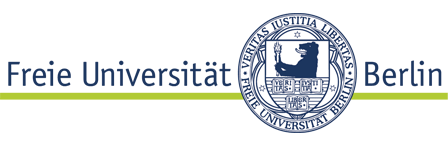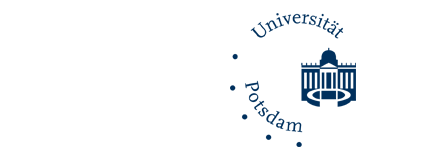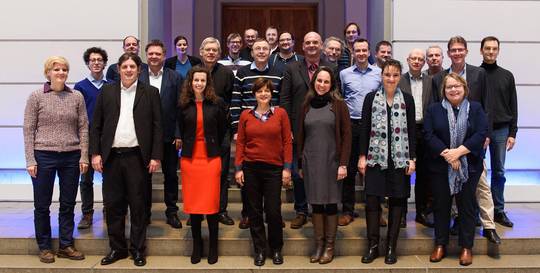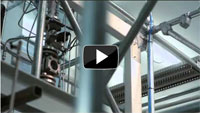Welcome to the Cluster of Excellence UniCat
Unifying Systems in Catalysis (UniSysCat) approved
“We are delighted about the cluster´s approval and the possibility to conduct innovative research,” says Matthias Driess, Professor of Chemistry at Technische Universität Berlin and one of UniSysCat’s three spokespersons. “We will work in five interdisciplinary research areas on the elucidation and evolution of catalytic networks. The aim is to fundamentally understand how reactants, intermediates, and reaction products come into customized contact with the various catalysts involved,” explains Arne Thomas, also cluster spokesperson and Professor of Chemistry at Technische Universität Berlin.
The UniSysCat Cluster of Excellence, proposed by Technische Universität Berlin, will play a key role in Germany and can build on ten years of outstanding work by UniCat, the previous cluster of the Excellence Initiative. "Individual catalytic reactions are already well understood in many cases. The challenge now is to decipher reaction networks in chemical and biological catalysis in space and time so that they can then be controlled, predicted and modified", explains Peter Hildebrandt, Professor of Physical Chemistry and third spokesperson for UniSysCat.
UniSysCat acknowledges all involved research groups and partner institutions for their great engagement and the excellent research contributions enabling the proposal to fund UniSysCat. Furthermore we are grateful for the work of all referees and the German Research Foundation (DFG) for the review and funding of UniSysCat.
News
Research Training Group “Bioactive Peptides – Innovative Aspects of Synthesis and Biosynthesis” approved by DFG
Funding for the new Research Training Group (RTG2473/1) “Bioactive Peptides – Innovative Aspects of Synthesis and Biosyn
[more]Stefan Hecht new Associate Editor of “The Journal of Organic Chemistry”
Prof. Stefan Hecht was appointed as Associate Editor at the American Chemical Society’s “The Journal of Organic Chemistr
[more]Alfred Stock Memorial Award for Prof. Christian Limberg
Professor Christian Limberg, Humboldt University of Berlin, Germany, has received the Alfred Stock Memorial Award from t
[more]Most Recent Publications
| In situ spectroelectrochemical studies into the formation and stability of robust diazonium-derived interfaces on gold electrodes for the immobilization of an oxygen-tolerant hydrogenase T. G. A. A. Harris, N. Heidary, J. Kozuch, S. Frielingsdorf, O. Lenz, M. A. Mroginski, P. Hildebrandt, I. Zebger, A. Fischer ACS Applied Materials & Interfaces 2018, 10, 23380–23391, 10.1021/acsami.8b02273 |
| O2-Tolerant H2Activation by an Isolated Large Subunit of a [NiFe] Hydrogenase S. Hartmann, S. Frielingsdorf, A. Ciaccafava, C. Lorent, J. Fritsch, E. Siebert, J. Priebe, M. Haumann, I. Zebger, O. Lenz Biochemistry 2018, 10.1021/acs.biochem.8b00760 |
| Engineering 'Golden' Fluorescence by Selective Pressure Incorporation of Non-canonical Amino Acids and Protein Analysis by Mass Spectrometry and Fluorescence T. Baumann, F. J. Schmitt, A. Pelzer, V. J. Spiering, G. J. Freiherr von Sass, T. Friedrich, N. Budisa Journal of Visualized Experiments 2018, 10.3791/57017 |
| Fully electrochemical MIP sensor for artemisinin A. F. T. Waffo, C. Yesildag, G. Caserta, S. Katz, I. Zebger, M. C. Lensen, U. Wollenberger, F. W. Scheller, Z. Altintas Sensors and Actuators B: Chemical 2018, 275, 163–173, 10.1016/j.snb.2018.08.018 |
| Antimicrobial Peptides Produced by Selective Pressure Incorporation of Non-canonical Amino Acids J. H. Nickling, T. Baumann, F. J. Schmitt, M. Bartholomae, O. P. Kuipers, T. Friedrich, N. Budisa Journal of Visualized Experiments 2018, 10.3791/57551 |
Legend:
● Lettering in red type = Events Organized or Coorganized by UniCat
● Lettering in green type = For Your Interest: External Events Concerning Catalysis








